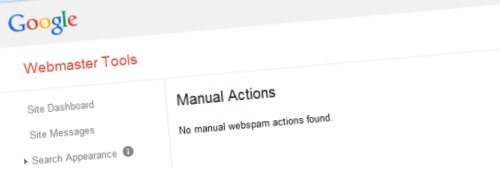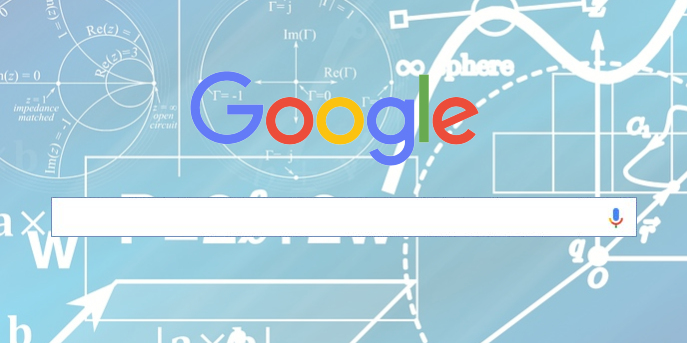
We have previously outlined how important links are in the calculations that search engines make to decide how high a website should be ranked for any specific search term. Because of this, many unscrupulous companies that offered Search Engine Optimization (SEO) services were able to guarantee vastly improved rankings for websites by employing "black hat" techniques that simply provided thousands of incoming links to those websites. Many of these techniques involved so-called "link farms" that existed solely to propagate incoming links amongst it's members. In effect, those wanting to reach the top of search results for some search terms were forced to engage in an arms race - with the website willing to spend the most money on incoming links being propelled to the top, and those websites following legitimate SEO methods being left behind.
How Google Punishes Bad Practices
Starting in April 2012, Google began changing it's algorithms to detect artificial linking schemes (an update called "Penguin" within the industry). These updates were designed not only to enable Google to differentiate between links generated artificially or created legitimately, but to also place more emphasis on the quality of incoming links to websites. By this means, Google was able to begin decreasing the search engine rankings of both those trying to beat the system (in fact some of the worst offenders were removed from Google's search results completely),and those who had earned high rankings based primarily on links from poor quality websites.
In April 2016, it became apparent that Google was starting to take a stricter approach to websites that profit from certain outgoing links, either from being paid or receiving a product or service in return for a review with a link. Affected users received a penalty warning via their Search Console that Google had detected "a pattern of links" that is "either unnatural or irrelevant".
And in September 2016, Google warned specifically against the use of links in "widgets" as an example of linking types it won't tolerate. "Today we would like to reiterate our policy on the creation of keyword-rich, hidden or low-quality links embedded in widgets that are distributed across various sites," announced Google in a blog post. Many sites create widgets that can be embedded in other websites to improve their users' experience - for example a website that sells gold might produce a widget that displays the current gold price, which can be integrated into other websites that write content about gold.
The problem with this where Google is concerned is that many of these widgets contain links that are not naturally placed - in the above example the gold price widget might contain a link back to the gold-selling website with keywords such as "cheapest gold price", thereby attempting to fool Google that the website has lots of backlinks which contextually promote the site as the cheapest place to buy Gold. But any links such as these are considered to be a violation of Google's Webmaster Guidelines, and if you produce a widget that can be embedded in other websites, it is important that any links contained within it feature the rel="nofollow" attribute. However, in acknowledgement that it would be difficult to get everyone who had embedded one of your widgets to update their code, in May 2017 Google's John Mueller said that Google "may automatically nofollow those links for you", meaning that penalties might not apply.
How To Identify Potential Problems

Website owners need to be diligent in managing many aspects of their website, including keeping tabs on both the websites that link to theirs and the websites they link to. Here are some ways in which website owners can make sure they don't fall foul of Google's linking policies:
- The best way to avoid breaking Google's linking policies is to concentrate on on-site SEO and publish great content that makes other website owners want to link to your website. For example, when a blogger references an article on your website from within a blog post with a similar topic, Google now knows that this is a "natural" link that adds value to the internet. Compare this to a link from a non-related website that also links to thousands of other websites and it should be obvious why Google values one over the other.
- Generally speaking, if you have a page on your site dedicated to linking to other websites (a "Links" page),you should strongly consider removing it and linking to websites only where relevant and within the body of text. At the very least, make sure that your Links page links only to high-quality websites which are relevant to your website's subject area.
- Do not ever profit from placing links to other websites on yours. Never sell links to other websites and if you receive a free product or service in return for publishing a review, always apply the "nofollow" attribute to any accompanying links so that the link does not benefit the other website. Google's John Mueller also recommends that such sponsored content should be clearly labeled for your readers.
- If you use Google Search Console (if you own a website either you or your web developer should be using it),you can easily see the websites that link to any website that you are the verified owner of by clicking on the "Links to Your Site" option under "Search Traffic". You should regularly check that the websites linking to yours are of a reasonable quality, are relevant to your website's subject area, and are not composed almost entirely of links to other websites. If you employ a company to carry out SEO services for you, they should be regularly monitoring this for you. Note that if a website links to yours using the "nofollow" meta tag, it will not be considered by search engines and can therefore be discounted as a potential problem.
How To Identify If Google Has Already Punished Your Website
When using Google Search Console (formerly Google Webmaster Tools),you should regularly check the "Manual Actions" section under "Search Traffic". This is where Google will alert you to any steps it has taken, out with the routine treatment of your website by it's algorithms, to punish your website due to what it considers to be bad practices. If you employ a company to carry out SEO services for you, they should be regularly checking for Manual Actions on your behalf. There should be nothing to see here for website owners that have always followed good SEO advice, but if there are any actions listed they need to be taken very seriously. Examples of Manual Actions that relate to linking behavior are "Unnatural links to your site" and "Unnatural links from your site".
Removing Potential Problems & Fixing Manual Actions
Whilst most people would agree with the fact that the "Penguin" updates have improved the quality of search results, Google seems to have decided that not all website owners should be punished indefinitely. After all, many website owners employ SEO services without any knowledge of what practices the company will use, and others unwittingly found that they were linked to from only one or two websites that were key to being punished by Google. In addition, decreasing the rankings of websites that were linked to from specific websites opened the door to the deliberate sabotage of website rankings, and indeed blackmail threats. For this reason, Google introduced tools for the specific purpose of disassociating a website with artificial or poor-quality incoming links:
- If you don't want a specific website to link to you, either because you have identified it to be of low quality, or Google has applied a Manual Action to your website because it is linked to from it, you can politely request that the owners of the website remove the link, and if that fails you can request that Google ignores the incoming links from such websites using their Disavow Tool. However, this tool should be used with extreme caution, preferably by a professional, and only after reasonable efforts have been made to have the link removed from the offending website yourself. Google's John Mueller recently clarified on Twitter that when an offending link is no longer "live" (i.e. it no longer exists),it can be safely removed from your list of disavowed links.
- If you have removed a significant number of either incoming our outgoing links that you have identified as being a potential problem, or you have removed links in response to a Manual Action, you can request that Google reconsiders your website and makes the necessary adjustments to your ranking in search results.
How Long Recovery May Take
If your linking strategy has been harming your search engine rankings, even after you take the steps outlined above it may be some time before your rankings recover. "Assuming the issues are resolved in the meantime, with an update of our algorithm or its data, it will no longer be affecting your site", said John Mueller, a Webmaster Trends Analyst at Google. This implies that only after the next "Penguin" algorithm or data update would rankings recover for sites that had been punished and then taken the necessary steps to fix the problem. With no update yet announced, website owners could be waiting some time. However, in July 2015, Google confirmed that it was working towards making Penguin and it's associated data update constantly and in real-time.
Repeat Offences
In September 2015, Google issued a warning to website owners that attract new penalties after successfully going through the consideration process - for example, a webmaster who removed an artificial link, submitted a reconsideration request and then after successfully being reconsidered, re-instated the artificial link. A Google spokesperson said that such "repeated violations may make a successful reconsideration process more difficult to achieve", implying that longer-term penalties will be applied to repeat-offenders. However, it's not yet clear whether harsher penalties will be applied to repeat offenders for different violations on the same website, or only for repeating exactly the same offence.
This is another lesson in why website owners should keep themselves up-to-date with Google's policies, even when they are employing another company to carry out SEO services. And, as we've said many times before, if an SEO service promises guaranteed rankings, it is probably a sign that they are using techniques that will actually eventually damage your search engine rankings.
Last updated: 23rd May, 2017


